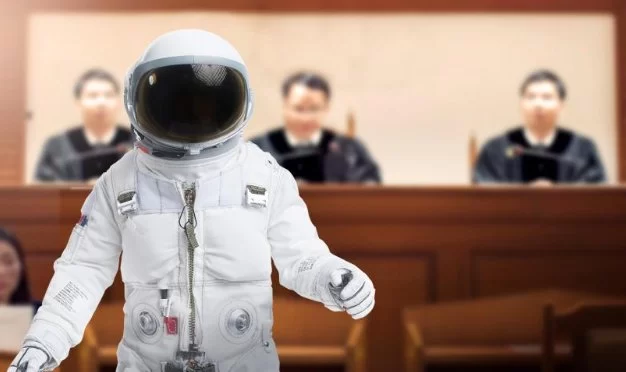
1-The Rise of Space Law and New Challenges
2-Ambiguous Ownership Rules in Space
3-Space Debris and Liability Complexities
4-Private Commercial Space Race vs International Treaties
5-Jurisdiction in Outer Space
6-Real Case Scenario: The Satellite Collision Dispute
7-Why Space Lawyers Remain Crucial for the Future
1. The Rise of Space Law and New Challenges
Outer space is no longer reserved for astronauts and government space agencies. With private companies launching satellites, planning moon tourism, and mining asteroids, legal questions have exploded. Understanding what issue can complicate the work of space lawyers begins with recognizing the massive expansion in space activity. More launches mean more interactions, more risks—and more disputes.
Space lawyers now navigate uncharted territory where technology evolves faster than legislation. Laws written during the Cold War must now govern billion-dollar businesses and international partnerships that stretch far beyond Earth.
2. Ambiguous Ownership Rules in Space
Space law currently prohibits any nation from claiming sovereignty in space, but companies are investing in satellites, moon bases, and asteroid mining. Who owns what out there?
2.1 The Outer Space Treaty Struggle
The 1967 treaty states space is for “the benefit of all mankind.” But how does that apply to profitable ventures? Space lawyers are still trying to define boundaries that nations never agreed upon clearly.
2.2 Resources Without Rules
If a company extracts minerals from an asteroid, can another company claim the same rock? Ownership confusion is a major issue causing legal tension.
3. Space Debris and Liability Complexities
More than 30,000 pieces of trackable debris circle Earth. When collisions happen, blame isn’t always clear. One country may launch a satellite, another may manufacture components, and a third may operate it.
3.1 Who Pays for a Collision?
If debris from an inactive satellite hits an active one, liability becomes a legal maze—especially when the owner no longer exists or the satellite’s origin spans multiple nations.
3.2 Cleanup Responsibility Unknown
Everyone agrees space debris is dangerous, but no nation wants to accept legal responsibility for global cleanup costs.
4. Private Commercial Space Race vs International Treaties
Companies like SpaceX and Blue Origin launch satellites weekly. However, all legal accountability still goes through national governments. This mismatch frustrates corporate progress and legal compliance.
4.1 Conflicting Interests
Businesses want innovation and profit. Countries want control and safety. Between them stands the space lawyer—balancing ambition with global regulation.
5. Jurisdiction in Outer Space
If a crime happens on Mars—who prosecutes it? As humans plan lunar bases and space tourism, unanswered questions multiply:
- Whose laws apply outside Earth?
- What if spacecraft carry multinational crews?
- Can a private station enforce internal rules?
This legal void can lead to conflict if not addressed proactively.
6. Real Case Scenario: The Satellite Collision Dispute
In 2009, a defunct Russian satellite crashed into a U.S. commercial satellite. No one took responsibility—even though both countries blamed each other’s inaction. That single incident marked a turning point, proving the urgent need for updated laws.
Space lawyers studying the event still debate who should have prevented the collision—highlighting exactly what issue can complicate the work of space lawyers: overlapping ownership, unclear liability, and outdated treaties.
7. Why Space Lawyers Remain Crucial for the Future
As the space economy moves toward trillion-dollar potential, legal infrastructure must evolve. Space lawyers are responsible for building agreements that allow science, business, and exploration to thrive together.
Organizations like ESPLawyers work to provide legal guidance for satellite operators, space mining pioneers, and future space tourists—ensuring innovation moves forward responsibly.
As humanity reaches for the stars, space law becomes the foundation that keeps our aspirations safe, fair, and aligned with shared global values.








